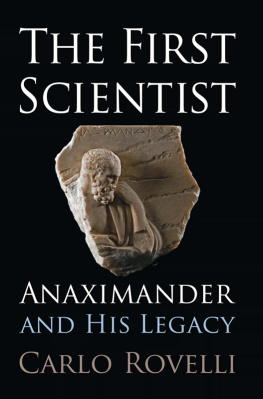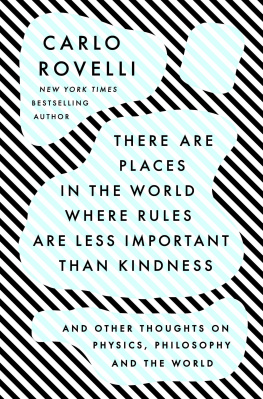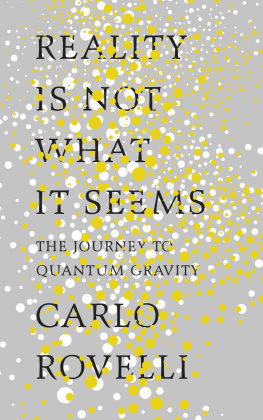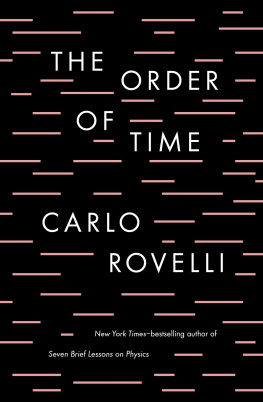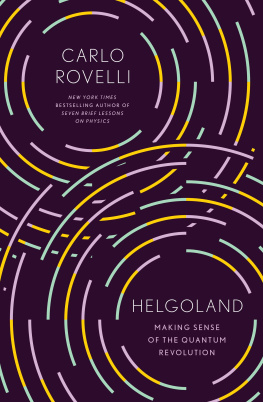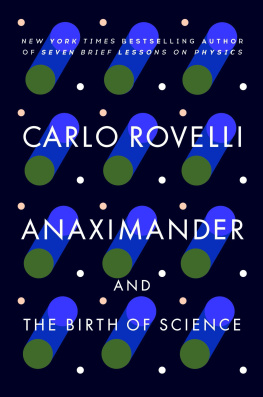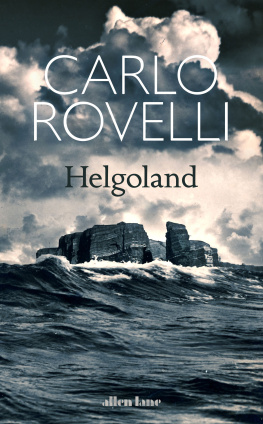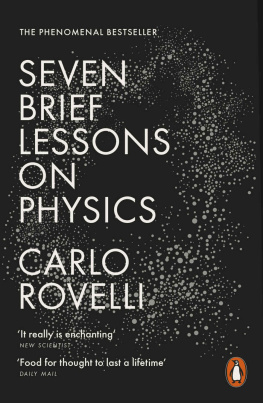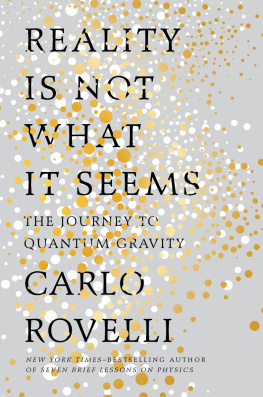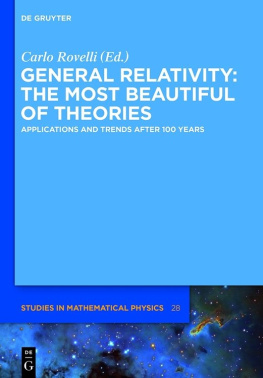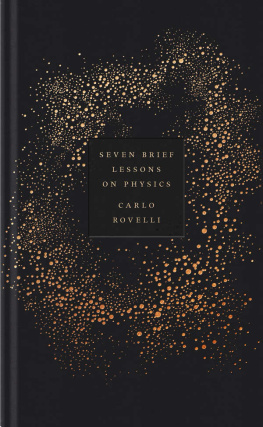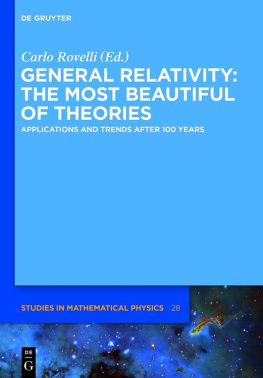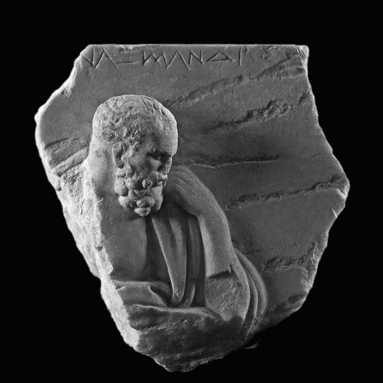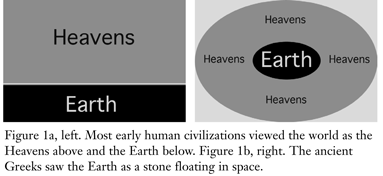Carlo Rovelli - The First Scientist: Anaximander and His Legacy
Here you can read online Carlo Rovelli - The First Scientist: Anaximander and His Legacy full text of the book (entire story) in english for free. Download pdf and epub, get meaning, cover and reviews about this ebook. year: 2011, publisher: Westholme Publishing, genre: Science. Description of the work, (preface) as well as reviews are available. Best literature library LitArk.com created for fans of good reading and offers a wide selection of genres:
Romance novel
Science fiction
Adventure
Detective
Science
History
Home and family
Prose
Art
Politics
Computer
Non-fiction
Religion
Business
Children
Humor
Choose a favorite category and find really read worthwhile books. Enjoy immersion in the world of imagination, feel the emotions of the characters or learn something new for yourself, make an fascinating discovery.
- Book:The First Scientist: Anaximander and His Legacy
- Author:
- Publisher:Westholme Publishing
- Genre:
- Year:2011
- Rating:3 / 5
- Favourites:Add to favourites
- Your mark:
The First Scientist: Anaximander and His Legacy: summary, description and annotation
We offer to read an annotation, description, summary or preface (depends on what the author of the book "The First Scientist: Anaximander and His Legacy" wrote himself). If you haven't found the necessary information about the book — write in the comments, we will try to find it.
Marvelous. . . . A wonderful book.Humana.Mente
Rovelli is the dream author to conduct us on this journey.Nonfiction.fr
At this point in time, when the prestige of science is at a low and even simple issues like climate change are mired in controversy, Carlo Rovelli gives us a necessary reflection on what science is, and where it comes from. Rovelli is a deeply original thinker, so it is not surprising that he has novel views on the important questions of the nature and origin of science.Lee Smolin, founding member and researcher at the Perimeter Institute for Theoretical Physics and author of The Trouble with Physics
Winner of the Prix du Livre Haute Maurienne de lAstronomie
Carlo Rovelli, a leading theoretical physicist, uses the figure of Anaximander as the starting point for an examination of scientific thinking itself: its limits, its strengths, its benefits to humankind, and its controversial relationship with religion. Anaximander, the sixth-century BC Greek philosopher, is often called the first scientist because he was the first to suggest that order in the world was due to natural forces, not supernatural ones. He is the first person known to understand that the Earth floats in space; to believe that the sun, the moon, and the stars rotate around itseven centuries before Ptolemy; to argue that all animals came from the sea and evolved; and to posit that universal laws control all change in the world. Anaximander taught Pythagoras, who would build on Anaximanders scientific theories by applying mathematical laws to natural phenomena.
In the award-winning The First Scientist: Anaximander and His Legacy, translated here for the first time in English, Rovelli restores Anaximander to his place in the history of science by carefully reconstructing his theories from what is known to us and examining them in their historical and philosophical contexts. Rovelli demonstrates that Anaximanders discoveries and theories were decisive influences, putting Western culture on its path toward a scientific revolution. Developing this connection, Rovelli redefines science as a continuous redrawing of our conceptual image of the world. He concludes that scientific thinkingthe legacy of Anaximanderis only reliable when it constantly tests the limits of our current knowledge.Carlo Rovelli: author's other books
Who wrote The First Scientist: Anaximander and His Legacy? Find out the surname, the name of the author of the book and a list of all author's works by series.

